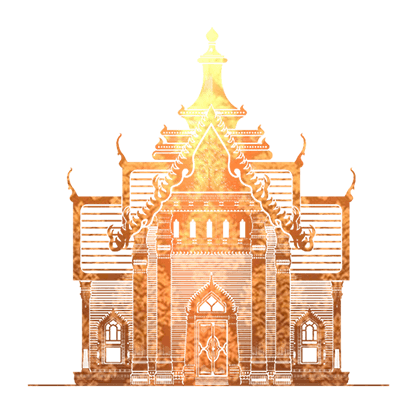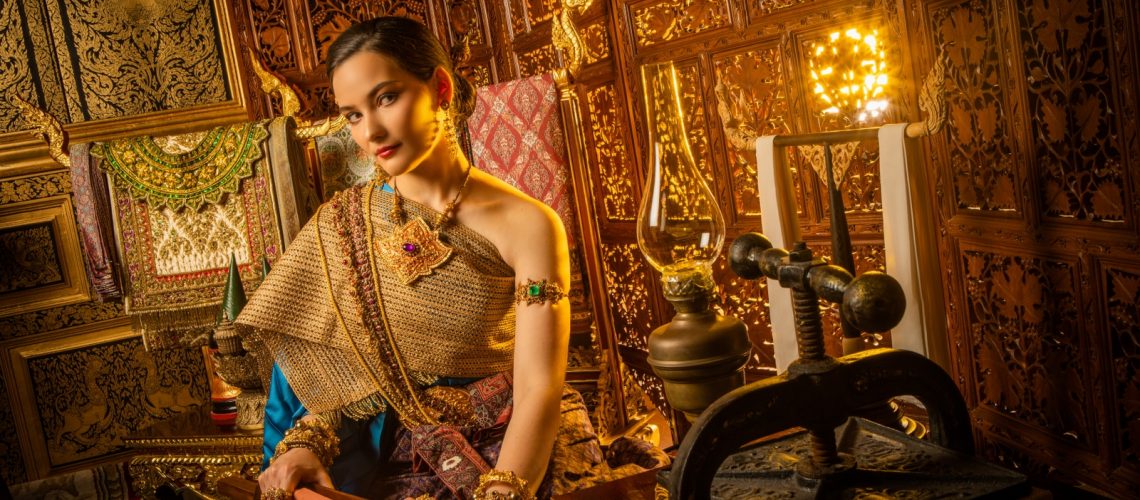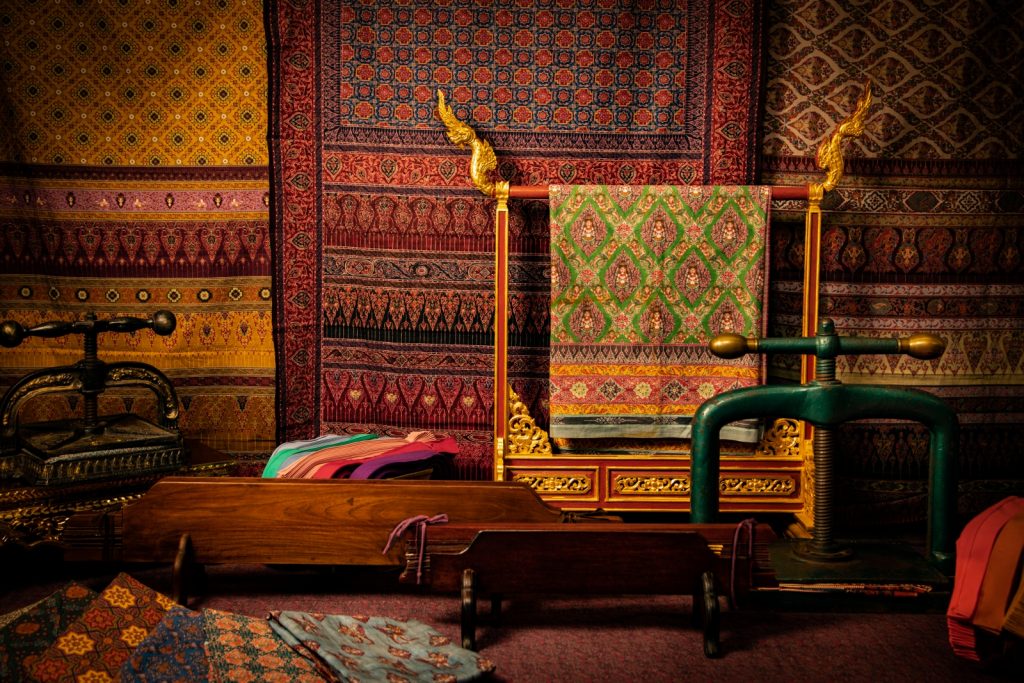
The Sabai (shawl) held significance as the primary attire for Thai women during ancient times. The societal status of Thai individuals was indicated by the intricacy of the cloth pleats. This was due to the absence of heat for smoothing fabrics in ancient times. Instead, only substantial tools like the “pleat folding tray” and “fabric pressing bench,” crafted from teak, were available. These tools supported the process of pleating fabric, requiring considerable time before the fabric could be worn
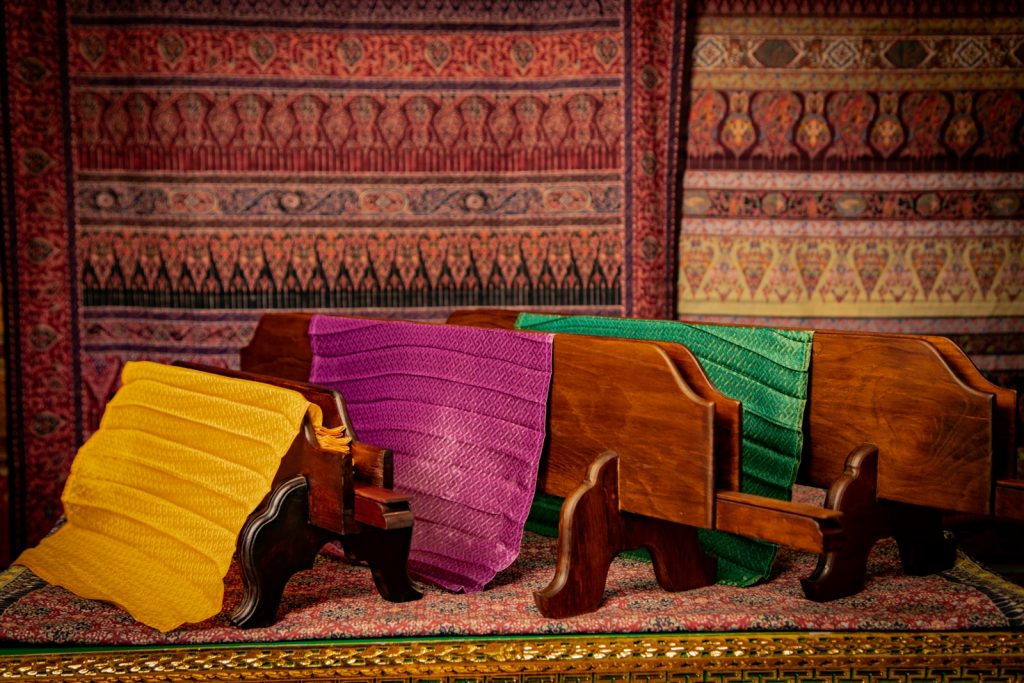
The shawl, typically crafted from silk, is generally resistant to becoming dirty; hence, frequent washing or cleaning is unnecessary. However, due to the habits of the palace people, there’s a requirement for consistent cleaning and fumigation to maintain a pleasant scent. There’s no necessity to boil this specific type of laundry. It merely requires washing with clean water, followed by air drying and the meticulous process of folding the pleats.
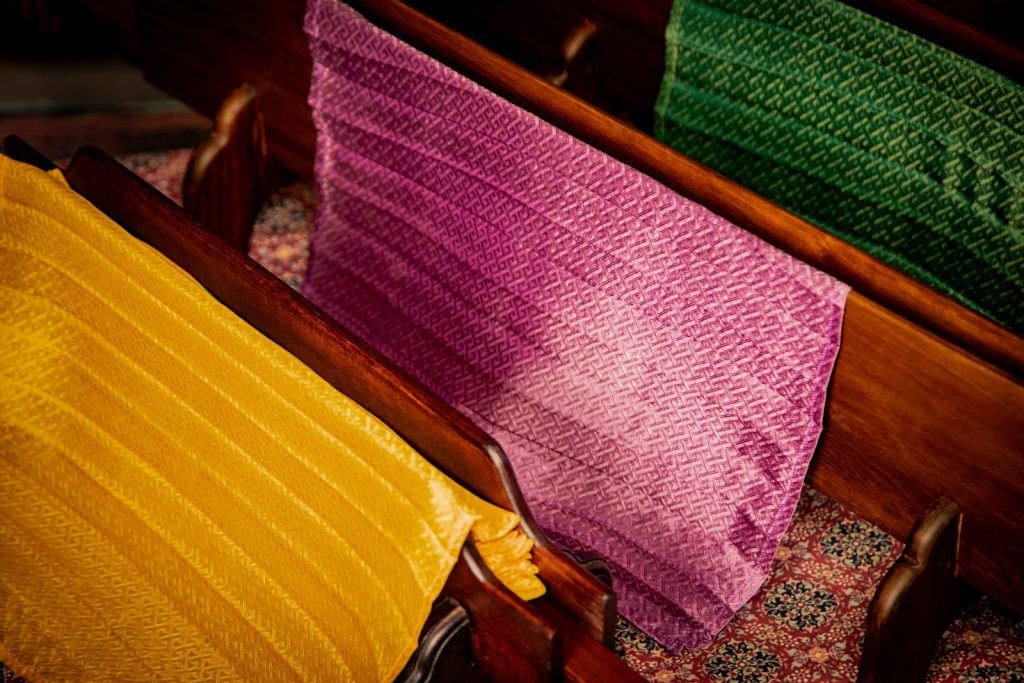
Various methods are employed for pleating shawls. One technique involves individuals using their hands, with two people collaborating to fold pleats on each side, requiring a high level of skill. Another method includes placing heavy objects on the fabric while folding to ensure a smooth and firm outcome. Alternatively, some individuals secure the pleats by tying the head, tail, and middle sections of the cloth. Interestingly, there are individuals possessing a unique ability to flirt using their big toe and next toe while simultaneously folding pleats on one side, yet this method is often criticized as commoner’s practice, leading palace peoples to avoid its use.
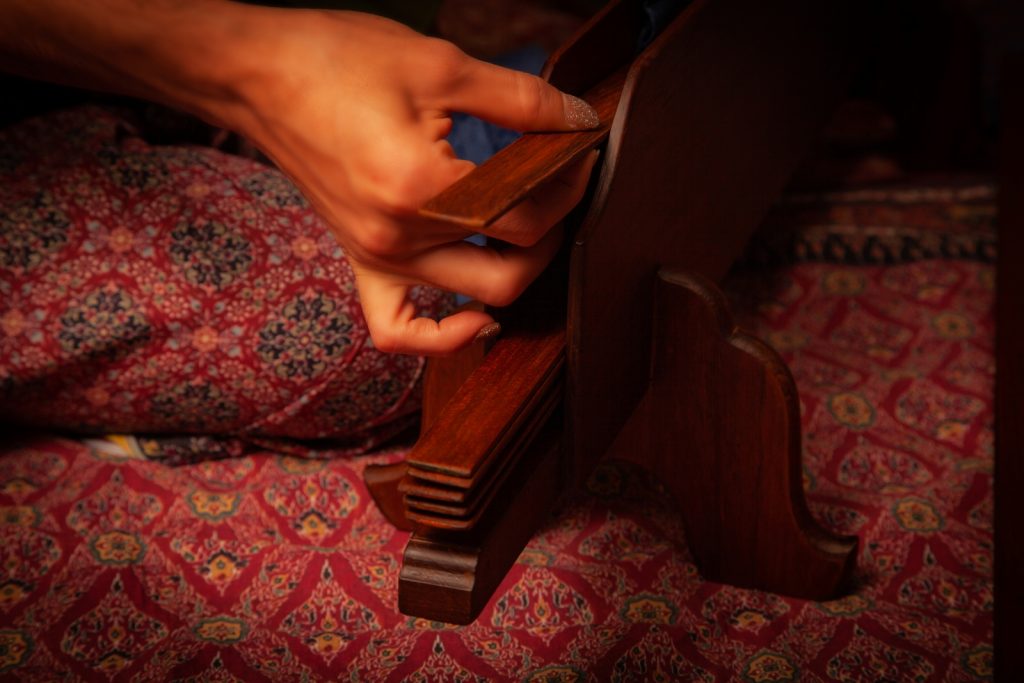
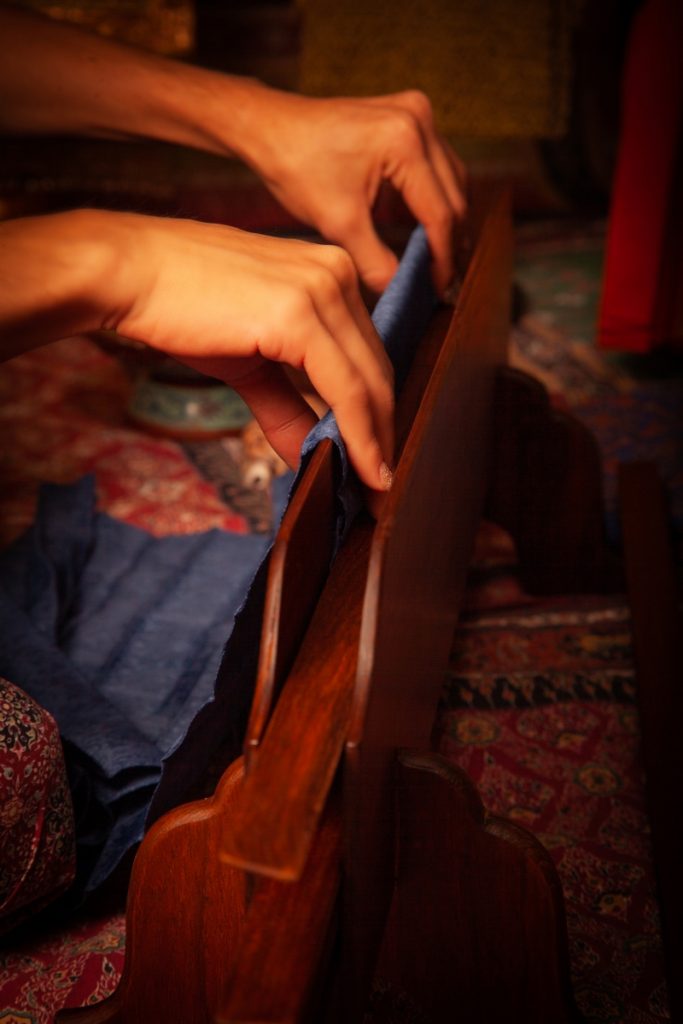
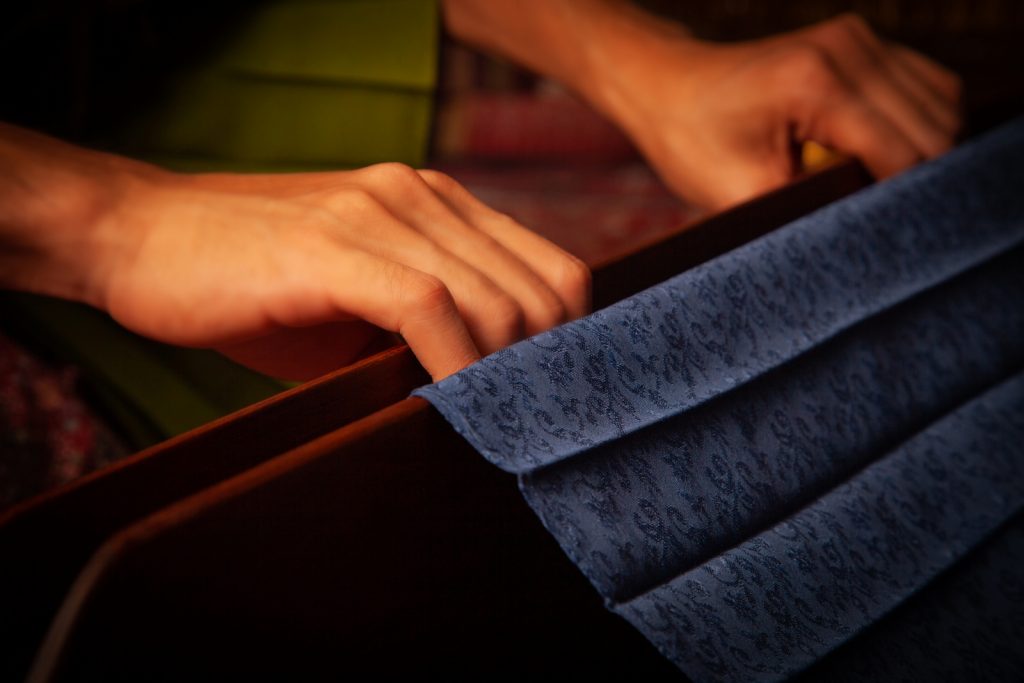
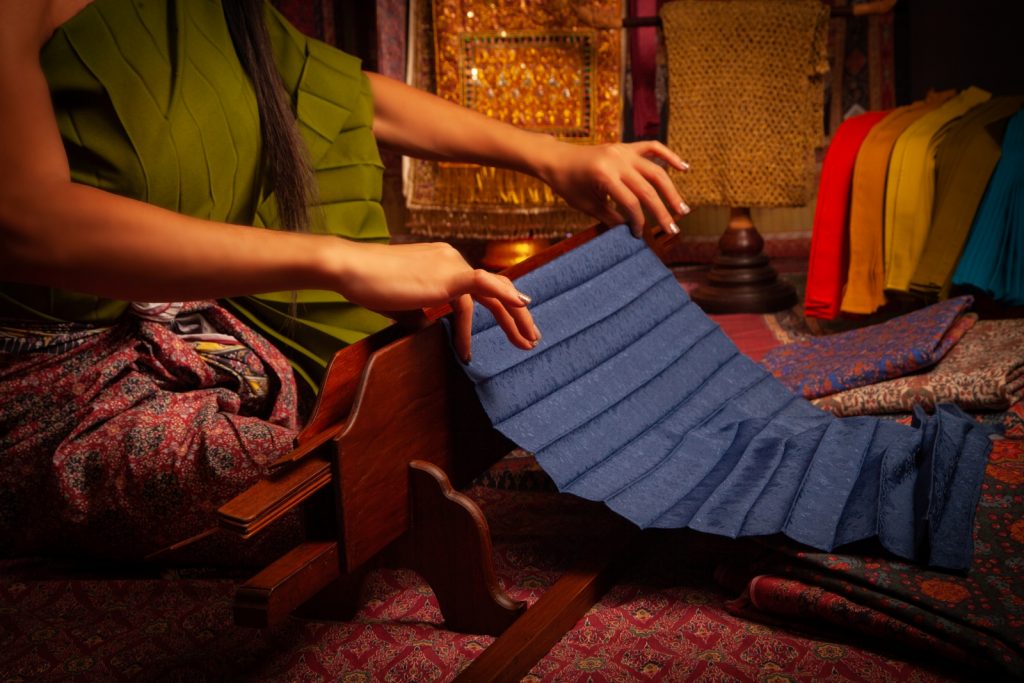
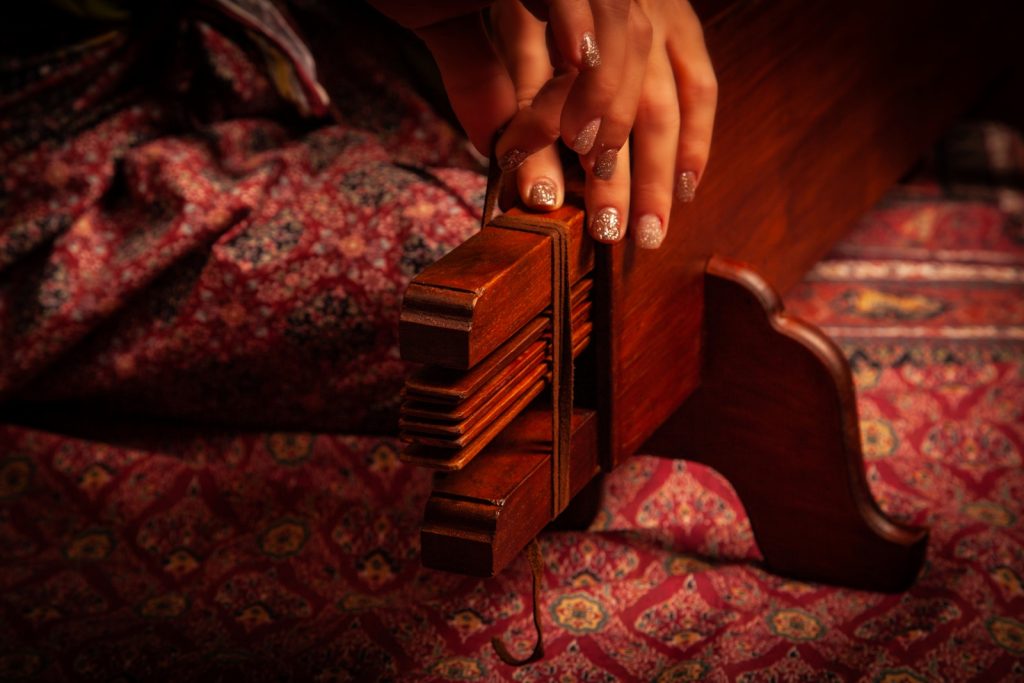
Another method commonly employed by palace peoples or women in the royal court involves the utilization of a “pleat folding tray.” This apparatus consists of two wooden pieces set in parallel, creating a groove between them. To utilize this method, one folds the pleats between the grooves, one piece at a time. Then, a similarly sized piece of wood known as the “Compressed tongue” is pressed down. Following this, strings are used to tie the cloth ends visible on both sides, or a sizable stick is placed on the top and bottom. Upon untying the string and removing the tongue stick, the result is a cloth adorned with beautifully crafted and enduring pleats.
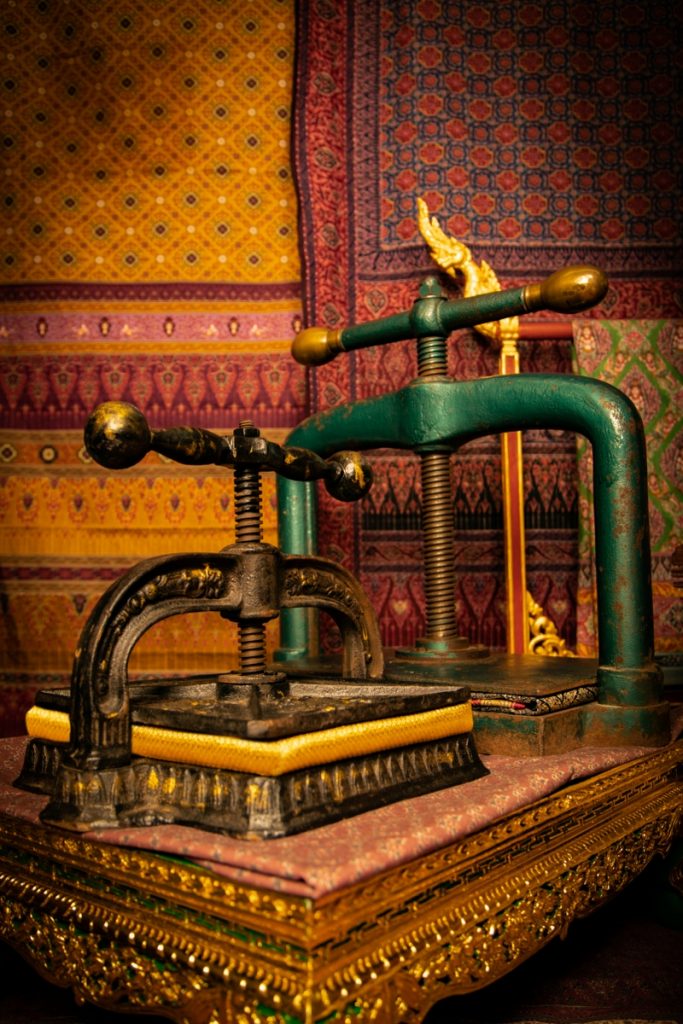
To achieve a beautifully smooth fabric, a method employed is the “rolling straightener,” resembling two long, round, or square steel balls stacked atop each other on a tall stand with a rotating knob as a handle. To utilize it, one spreads the entire cloth piece between the steel balls and slowly rotates the handle to pass the fabric through the steel balls gradually. This technique effectively smoothens the fabric akin to ironing. Over time, this method evolved into warm toasting, offering an alternative means to attain smoothness in fabrics.

(Thank you for photo antiqueclubone)
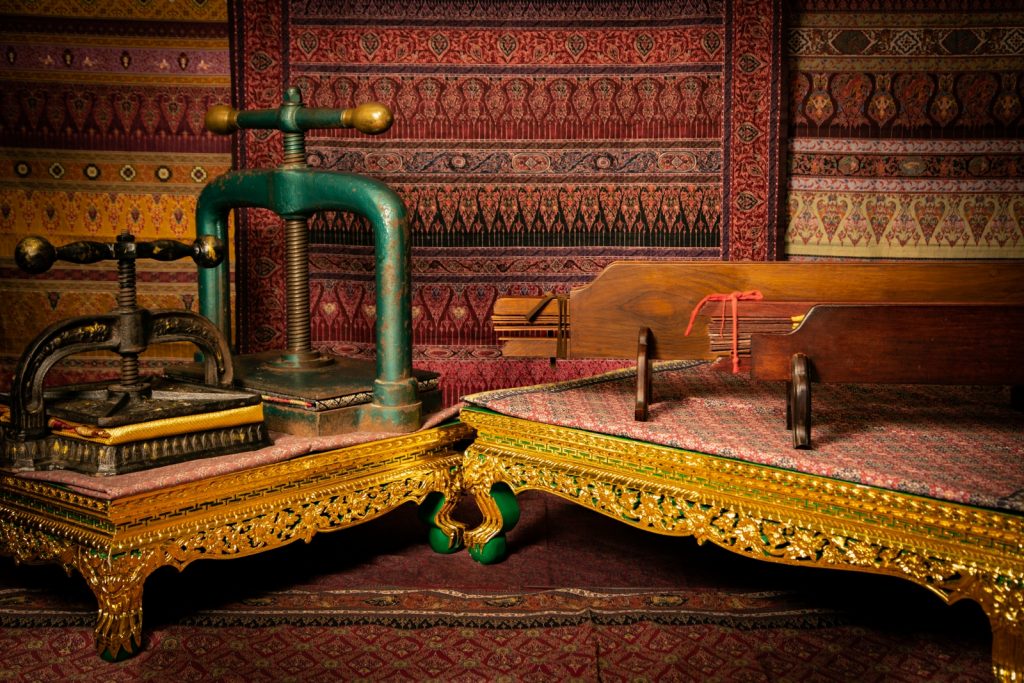
“Delve deeper into each step, wisdom proudly shines through.”

An author assistant Nonthawat Ningjaiyen
TRULY THAI AUTHENTIC YOU CAN BE
>>ติดตามเรื่องราวความเป็นไทยอย่างใกล้ชิดที่ Thai Style Studio<<
เพราะเราเชื่อว่า “มากกว่าความรู้สึก คือ การได้สัมผัสประสบการณ์ความเป็นไทยด้วยตัวคุณเอง”
